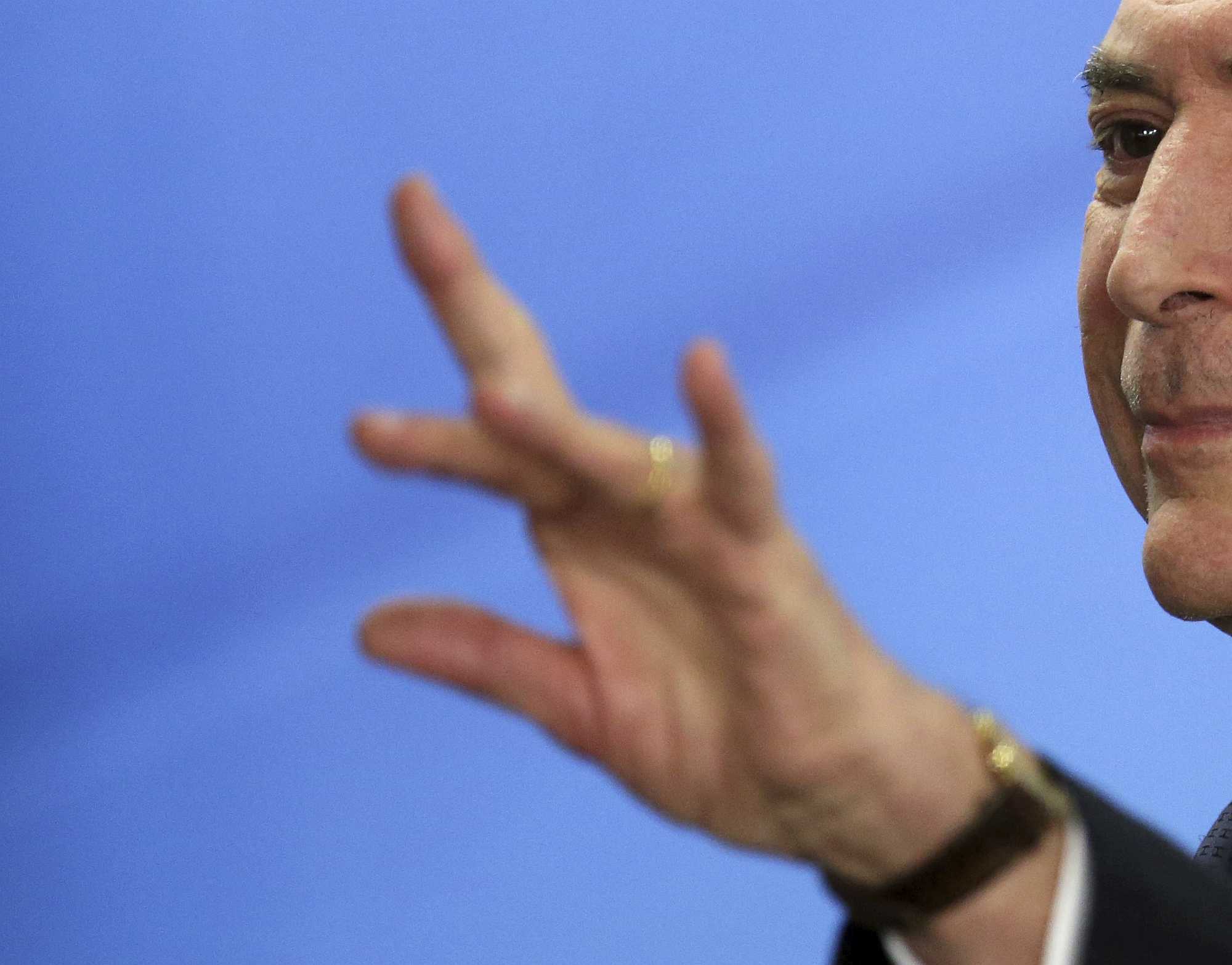Brazil’s president faces criminal charges and 2% approval rating – but here’s how he clings on
Brazil’s attorney-general, Rodrigo Janot, has charged the president, Michel Temer, with the crime of “passive corruption” – more commonly known as accepting a bribe. The country’s supreme court will now send the charge to congress’s lower house, the chamber of deputies, which will have to decide whether the court can try him.
To do that, two-thirds of the house’s members must vote in favor. If they do, Temer will have to step aside for the duration of the trial, and the president of the house, Rodrigo Maia, would become interim president.
But whether or not Temer is sent to court, the spectacle of members of congress casting their vote for and against the criminal prosecution of the president is unprecedented in Brazilian political history.
The charge against Temer comes from the plea-bargained testimony of Joesley and Wesley Batista, two owners of the multinational meat company JBS.
Their evidence includes a secretly recorded conversation between Joesley Batista and the president, and a video of Temer’s former aide Rodrigo Rocha Loures leaving a pizzeria and hurrying towards a taxi with a suitcase containing US$ 500,000 reais (US$ 150,000).
The audio and video, released by the Globo news network in mid-May 2017, resulted in the most serious charge yet to come out of the massive anti-corruption probe known as Operation Car Wash, which began in March of 2014.
Dubbed “Car Wash” because it began as a Federal Police probe into money laundering in a car wash in Brasília, this complex of investigations has now expanded to a gargantuan effort involving the federal police, the public prosecutor’s office and the judiciary.
Temer vehemently denies the charge as a “fiction” and insinuated that the attorney-general had received money from JBS. He has ignored pleas to resign made by the Folha de S. Paulo newspaper and the Globo media conglomerate, as well as well-known political figures such as former presidents Fernando Henrique Cardoso and Luiz Inácio Lula da Silva.
Although few prominent politicians are openly supporting Temer, the president is counting on the backing of enough members of congress to stave off a trial in the supreme court. His government’s approval rating is by some estimates now as low as 2%.
Members of the lower house who intend to shield the president from prosecution must make a difficult calculation. Some will be voting out of self-interest because they themselves are being investigated by Operation Car Wash’s anti-corruption team.
They also know they will face the electorate in 2018 – and voting to defend an unpopular and allegedly corrupt president could well doom them at the ballot box.
But then again, many voters are feeling resigned. After all, if corruption is truly systemic, what point is there trying to work out who’s clean?
Worn out
Perhaps a more decisive issue come the next election will be the state of the economy. After two years of recession, the economy is projected to grow by less than 0.5% in 2017, while unemployment is at record-breaking levels of almost 14%.
The current political mess isn’t helping, but nor would the extended period of uncertainty that would follow a vote to send Temer to court. And if the economy doesn’t improve, even members of congress who vote to dispatch Temer may be tainted by association.
Brazil’s population, exhausted by a series of revelations of systematic corruption that have been fed to the media since the start of the Car Wash investigations, seems too shell-shocked to act.
The president has only 18 months of his mandate left – and considerable political and legal resources. Protests against Temer have been much smaller than the 2015 and 2016 protests both against and especially in favor of impeaching his predecessor, Dilma Rousseff.
One difficulty is that unlike in the case of Rousseff, Temer lacks an obvious successor – and the mechanism to install one is ungainly. If he were tried and convicted in the supreme court, that would force an “indirect election”, wherein congress would vote for a successor to serve out the remainder of the presidential term.
But the law regulating such an election is vague and the sheer number of politicians under investigation for corruption means viable and popular candidates are thin on the ground.
Temer may yet survive – his image and moral authority badly tarnished, his political support frayed, but a survivor nonetheless, clinging to his presidency for dear life like someone tossed overboard at sea.
If he endures, it will be a testament to the abject state of the political system, the devastating impact of the anti-corruption investigations on the political establishment and the seeming inability of Brazil’s democracy to renew itself and to evolve into a more transparent and accountable form of governance.
That renewal, if it comes, might not arrive until January 2019, when a new president would take office. Any new president will face daunting challenges – above all, unprecedented distrust of the political establishment and a legitimacy crisis that will make governing Brazil extraordinarily difficult for whoever takes on the job.
Anthony Pereira is director of the King’s Brazil Institute at King’s College London
This article was originally published in The Conversation. Read the original article here: https://theconversation.com/brazils-president-faces-criminal-charges-and-2-approval-rating-but-heres-how-he-clings-on-80292






